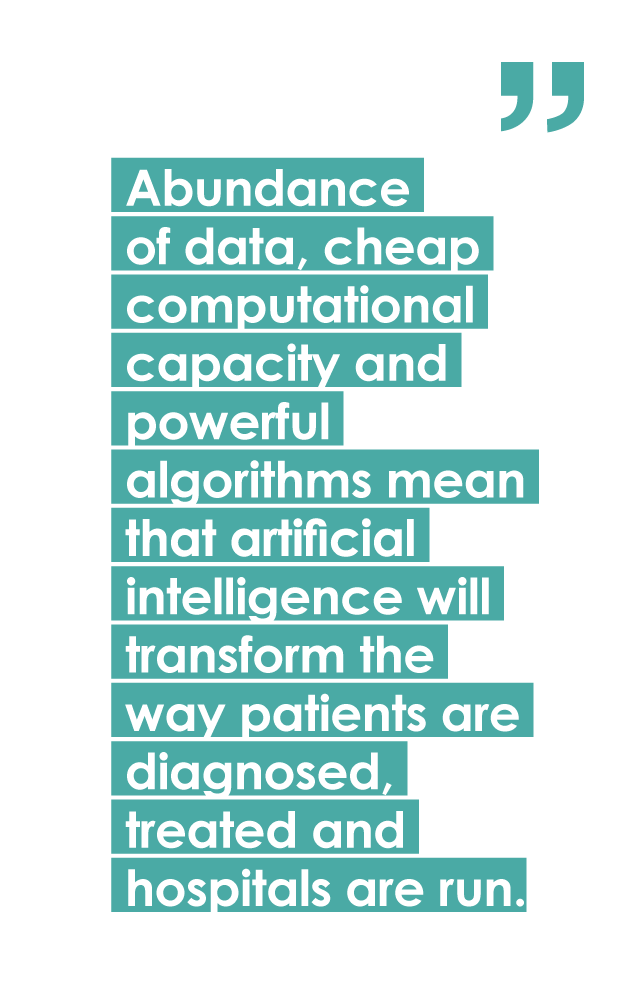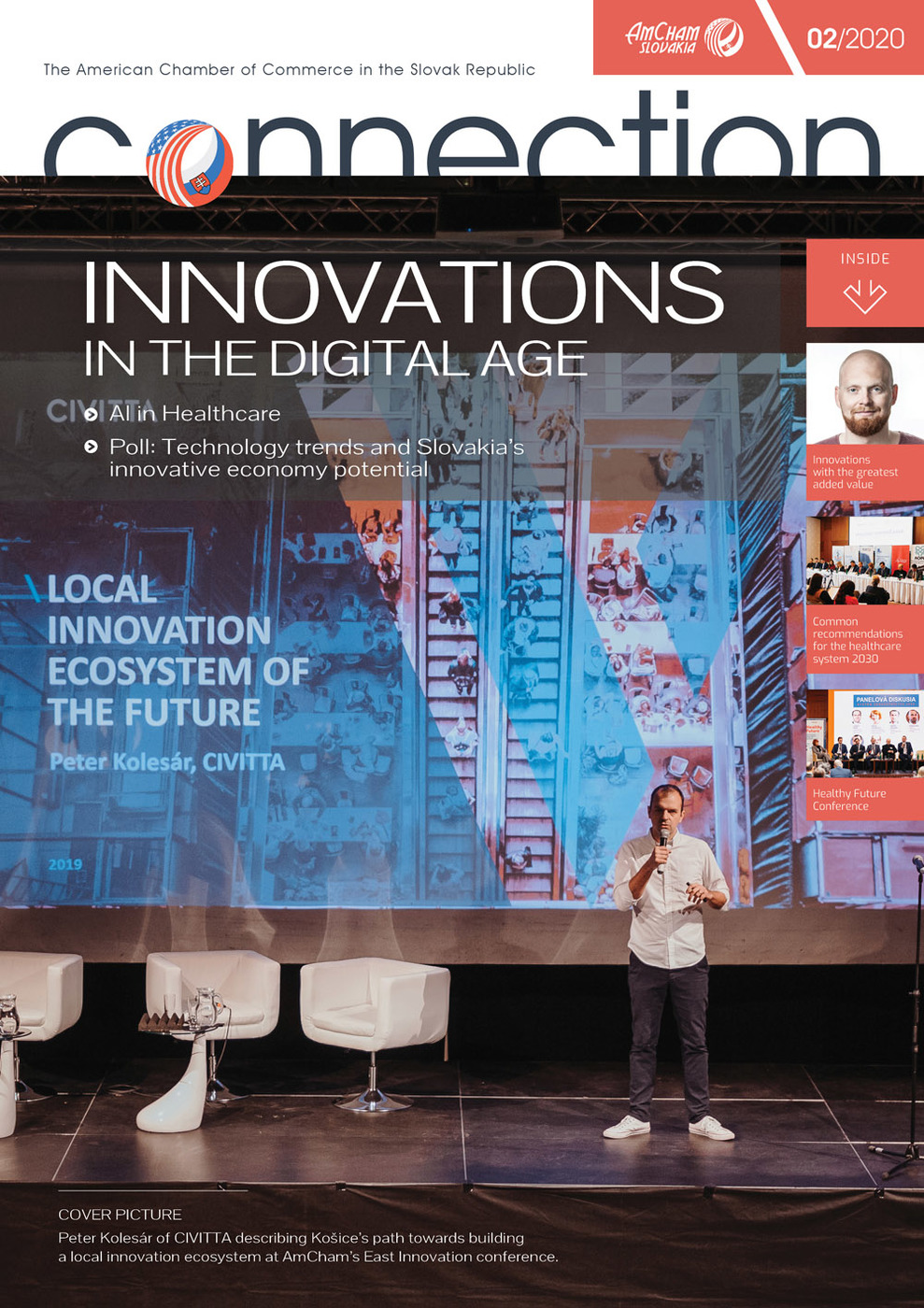Currently, the U.S., China and the EU are all competing for dominance in the field, investing significant resources into human capital, infrastructure as well as into laws balancing the usability and protection of data. In the current decade, the European Commission seeks to attract €20 billion of investment per year in order to remain competitive in the global market.
What is AI?
Artificial intelligence might evoke ideas of self-driving cars, algorithms beating the best players in chess, or a dystopic future of autonomous robots making us obsolete. Only recently, Google’s AlphaGo beat the best player in the game of Go, where the possible number of moves is greater than the number of atoms in the universe. In reality, Artificial intelligence is what “appears” as intelligent behavior, but may be far from it. AI includes algorithms known for decades, such as the logistic regression, as well as new methods including neural networks – a hot topic in today’s academic research. What these algorithms have in common is that they get better with more data (they can “learn”), and they are able to perform a single task with an immense precision – given enough data and the right algorithm.
AI in Healthcare
Given increasing demand for healthcare around the world, medical staff shortages and the wealth of data collected, the healthcare sector is well-placed to harness the benefits of AI technology. Doctors and nurses are frequently overworked and overwhelmed with information ranging from electronic health records and medical history to patients’ genomic data. While algorithms are far from replacing doctors altogether, they can already perform very specific tasks at par – or even better – than the average doctor.

In 2017, Stanford researchers created an algorithm which could detect pneumonia from chest X-rays with a higher precision than the radiologists competing with it. A clever use of such an algorithm to guide doctors or double-check their results could save doctors’ time, reduce costs and most importantly, improve diagnostics and treatment for patients. More algorithms will follow to revolutionize the field of radiology and imaging (e.g. detecting skin cancer from a photograph), but it is important to remember that it is always the medical expert with the final say and responsibility for the patient’s diagnosis.
AI algorithms are already having an impact in patient treatment in addition to diagnostics. IBM Watson is a software which recommends oncology treatment based on patient data, recommendations by expert oncologists, academic literature, and even patient genomic data. The system was deployed in Slovakia by hospitals in the “Svet zdravia” network for several years. Since IBM Watson was trained with U.S. data and guidelines, local data about drug availability and dosages or country-specific guidelines need to be implemented in the algorithm in order for it to give locally relevant recommendations. This is a principle applicable to all AI – while the algorithms can “learn,” they can only do so within the scope of the data provided to them.
Finally, AI could bring large benefits in healthcare efficiency and process optimization. Artificial intelligence algorithms are already used today to plan patient screening, optimize staffing at urgent care or to detect fraud and errors in medicine prescription. The advantage of using AI in healthcare outside of the scope of direct treatment and diagnosis is a significantly smaller risk for the patient and less legal liability for the healthcare provider. Since technological progress is often quicker than structural legal and societal changes, we might expect AI algorithms to be fully deployed in these areas quicker than in areas of direct contact with patients.
AI in Slovakia
The Institute for Health Policies (IZP) at the Ministry of Health of Slovakia is currently working on a Roadmap for utilizing AI in healthcare, so that Slovakia has the human capital, infrastructure, and legal framework in place for harnessing the AI revolution in healthcare. Like many other countries, Slovakia is experiencing a shortage of staff and the outlooks remain negative; that is why using advanced technology such as AI may be necessary in order to provide high quality healthcare for all Slovak citizens now and in the future. On this path, cooperation with organizations encompassing academic, business and government institutions, such as SlovakAI, will be crucial.
The Institute for Health Policies has also created a fraud detection algorithm based on artificial intelligence, which has already been used by health insurance funds to analyze atypical prescription behavior and to significantly limit the amount of atypical behavior associated with the drug. The algorithm is based on unsupervised machine learning, which means it finds patterns in data with no or very little direct input. It takes into account hundreds of millions data points which include information on treatment choice, treatment intensity, diagnosis or affiliation with a medical provider. The algorithm is able to discern standard treatment for a given drug and diagnosis, while uncovering atypical patterns of prescription – such as those with extremely high dosage or incoherent diagnosis – and provide this information to the medical auditor. The Institute is working on improving the algorithm with cooperation from medical auditors at health insurance funds and with help of the European Commission.
AI is here
Abundance of data, cheap computational capacity and powerful algorithms mean that artificial intelligence will transform the way patients are diagnosed, treated and hospitals are run. As with most major technological transformations, the question is not whether the change will come, but whether we will be prepared to use it to our benefit when it does. In order to do so, the healthcare sector will need to invest in educating medical staff in utilizing AI technology, in building data analysis and bioinformatics teams, and in developing an AI ecosystem by providing a clear regulatory framework.
The arrival of artificial intelligence
Big data analytics and artificial intelligence are poised to revolutionize the field of healthcare in the coming years given the abundance of data and powerful algorithms.
Innovations in the Digital Age
- Innovations with the greatest added value
- The arrival of artificial intelligence
- AI and doctors fighting diseases alongside
- Common recommendations for the healthcare system 2030
- New space for Slovak businesses
- Software robotization redefining white-collar industry
- The workplace of the future
- Fintech battlegrounds: Europe vs. the U.S.
- Transformative technologies and Slovakia’s path towards an innovative economy
- United States visa options for the Slovak entrepreneur, business or start- up
- The level of R&D matters!
- Science parks as ecosystems for efficient technology transfer and innovation



Follow us